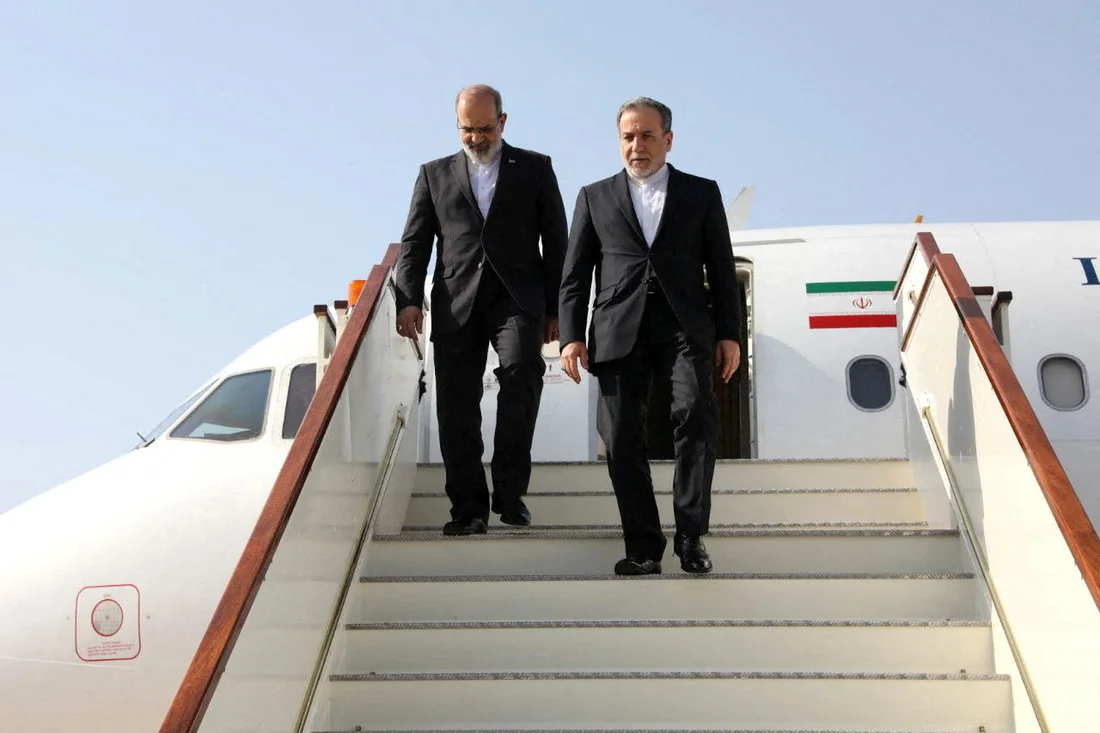Top Iranian and U.S. negotiators opened a new round of indirect talks on Saturday aimed at crafting a deal to curb Tehran’s nuclear programme, as U.S. President Donald Trump expressed optimism about reaching an agreement that would block Iran’s path to developing a nuclear bomb.
Preliminary expert-level meetings took place ahead of indirect negotiations between Iranian Foreign Minister Abbas Araqchi and Trump’s Middle East envoy, Steve Witkoff, mediated by Oman. The talks follow a second round in Rome last week that both sides described as constructive.
Trump, now in his second term, has prioritized diplomacy in some of the world’s most pressing crises, including Russia’s invasion of Ukraine, Israel’s conflict in Gaza, and Iran’s nuclear ambitions. In an interview with Time magazine published Friday, Trump said, “I think we’re going to make a deal with Iran,” while simultaneously warning of potential military action if diplomacy fails.
Iran, meanwhile, is eager to secure sanctions relief amid a struggling economy and following military setbacks against regional rival Israel. Iranian state media confirmed that negotiations had begun, with IRNA reporting, “A third round of negotiations between the Islamic Republic of Iran and the United States of America started in Muscat,” though further details were sparse.
A source close to the Iranian negotiating team said that Saturday’s meetings were at the expert level, working to outline a framework for a potential nuclear agreement, ahead of an anticipated indirect session between the lead negotiators.
Gaps Remain Wide
Despite both sides’ commitment to diplomacy, substantial gaps persist. Trump’s administration has reinstated a “maximum pressure” campaign on Tehran since February, reversing the 2015 nuclear deal — abandoned during Trump’s first term in 2018 — and reimposing severe sanctions.
Since 2019, Iran has progressively breached the 2015 deal’s nuclear limits, notably accelerating uranium enrichment to 60% purity, approaching the 90% weapons-grade threshold, according to the U.N. nuclear watchdog.
U.S. Secretary of State Marco Rubio said this week that any new deal must require Iran to halt all uranium enrichment and to import fuel for its sole operational nuclear power plant in Bushehr.
While Iranian officials have indicated willingness to accept some restrictions in exchange for sanctions relief, they insist that ceasing enrichment or surrendering enriched uranium stocks are non-negotiable “red lines.”
Missile Programme Tensions
European diplomats have advised U.S. negotiators that a comprehensive agreement should also curb Iran’s ability to deploy nuclear warheads via ballistic missiles. However, Tehran views its missile program as non-negotiable. Iranian leaders maintain that their missile capabilities pose no regional threat and are essential for national defense.
An Iranian official familiar with the talks emphasized Friday that missile issues could become a major stumbling block in negotiations.
Tensions between Iran and Israel remain high after Iran launched scores of ballistic missiles at Israeli targets last year in retaliation for the assassinations of Iranian commanders and allied paramilitary leaders — an escalation fueled by the conflict in Gaza.


